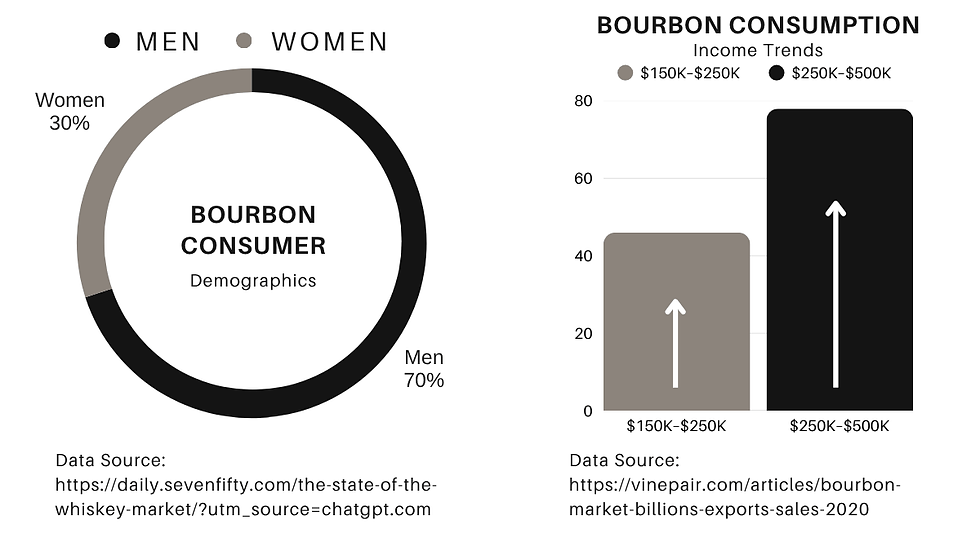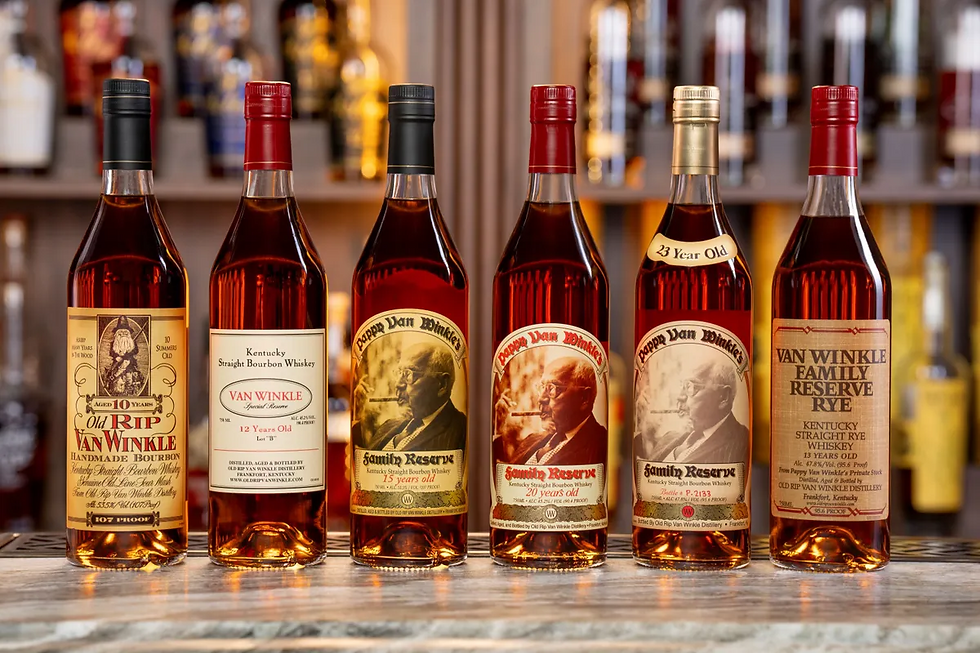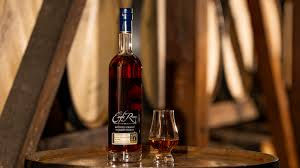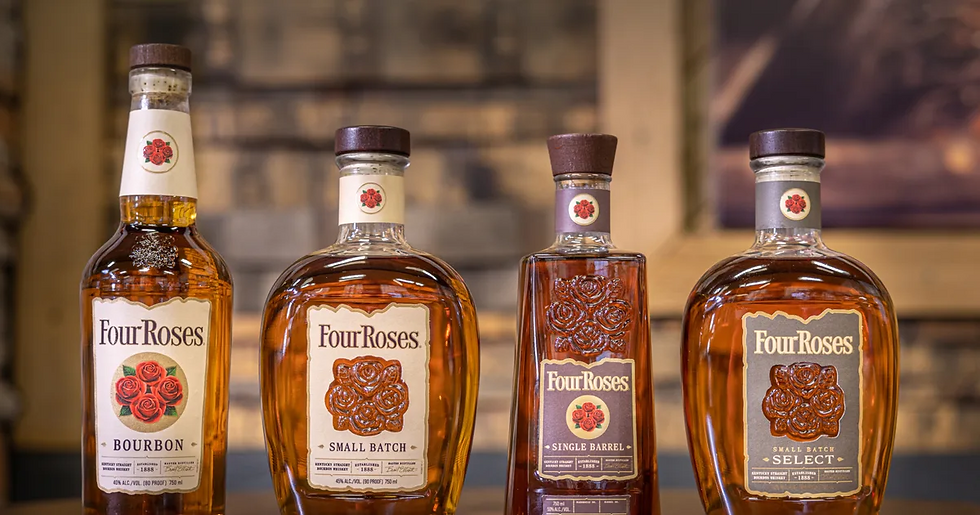Bourbon 101 for the Ambitious Collector: 5 Foundational Bottles to Know + 5 of the Most Expensive Right Now
- Jacqueline May
- Oct 30, 2025
- 4 min read
Updated: Dec 9, 2025

Editor’s note: I am not a bourbon drinker. What follows is a curation informed by close friends who collect seriously and by respected whiskey publications and auction houses. What stands out most is not just the liquid in the glass, but the demographic and psychological patterns behind it. Think of this as a smart primer for women who want fluency in a room full of bourbon connoisseurs.
What should you know before starting a bourbon collection — especially if you’re not a big bourbon drinker yet?
You don’t need a refined palate or years of experience to appreciate what makes certain bottles iconic. What matters is understanding heritage, scarcity, and craftsmanship. These are the three pillars of modern bourbon collecting. And for many women, bourbon isn’t about becoming a connoisseur. It’s about stepping confidently into a space that has historically excluded us, and doing so with context and clarity rather than imitation.
This guide was curated with beginners in mind. I’ve combined insights from trusted collectors, auction data, and expert sources to break down the essentials clearly and without pretense. You’ll learn the five foundational bottles that anchor any meaningful bourbon conversation and the five ultra-premium releases shaping today’s luxury market.
Think of it as your starting point. You gain cultural fluency first, taste exploration second, and strategic collecting always in view.
Now, let’s begin with why bourbon has become one of the most compelling categories for ambitious collectors today.
Why bourbon sits at the crossroads of taste, status, and scarcity
Modern bourbon collecting lives where craftsmanship meets limited supply. Labels with credible provenance, distinctive mash bills, and historic distilleries command attention.
Auction data shows American whiskey is now competing with “blue-chip”, aka high-end, Scotch at the top of monthly leaderboards, which is a shift worth noting if you watch luxury markets .
Demographics: Who drinks, who collects, and why it matters

Bourbon still skews male at roughly 70 percent, with women now closer to 30 percent and growing fast as tasting groups, auctions, and even ownership become more inclusive.
The widest enthusiasm sits at ages 21–35, while serious collectors cluster in their mid-30s to 50s, where disposable income and a taste for legacy assets converge.
Growth is strongest in $150K-plus households, and the buyer base is diversifying beyond its historic white-male core.
In practice, bourbon collecting now functions as both passion and portfolio.
The 5 brands or vintages every collector should know
Van Winkle (aka Pappy) especially pre-Buffalo Trace and early 2000s releases

Do yourself a favor, if you remember one name, make it Pappy.
Stitzel-Weller-era and early Buffalo Trace bottlings of Pappy Van Winkle 23 Year are consistent winners, and auction catalogs routinely spotlight 2008 and 2013 releases.
Note: Only bottlings from 2002 and earlier use Stitzel-Weller barrels; from 2003 onward, production shifted to Buffalo Trace as noted in Sotheby’s Bourbon auction.
Learning which years tie back to Stitzel-Weller and how proofs shifted will instantly raise your bourbon literacy.
A. H. Hirsch 16 Year Reserve (1974 distillate, “Blue Wax”)

The bottles distilled in 1974 and bottled in the 1990s are legend, with auction estimates commonly in the mid-to-high four figures (some results now exceeding $10K!).
If a Hirsch 16 appears at a reputable house, it will draw eyes.
Very Very Old Fitzgerald 1950 “Blackhawk” (18 Year)

Old-label, wheated Heaven Hill distillate with museum-piece gravitas. Just this past September a Blackhawk went for $85,000 at Sotheby’s, topping that month’s global auction chart according to Whiskey Advocate.
Buffalo Trace Antique Collection (BTAC) — know the set, know the standouts

Yearly releases, extremely limited. We are talking Eagle Rare 17, George T. Stagg, William Larue Weller, Sazerac 18, Thomas H. Handy, and for 2025 only, E. H. Taylor Bottled-in-Bond as a special sixth member.
Serious collectors speak in BTAC years the way wine people talk vintages.
Four Roses Limited Edition Small Batch — start with 2013 and 2019

If you want a non-Van Winkle masterclass in blending and recipe codes, study the Four Roses LE Small Batch line.
The 2013 125th Anniversary and 2019 releases are widely cited as high points and still show robust secondary values.
Honorable mention: Old Forester Birthday Bourbon. The 25th release in 2025 switched to a sweet-mash process, a notable technical pivot collectors will remember.
The 5 most expensive bourbons making headlines
Note: Prices subject to fluctuation. Use these as directional markers.
Name | Distillate / Release | Recent Price (2025) | Details |
Old Rip Van Winkle 25 Year | 1989 / Bottled 2017 | $125,000 | Set American whiskey record at Sotheby’s in March 2025 see Decanter. |
Very Very Old Fitzgerald “Blackhawk” | 1950 (18 Year) | $85,000 | Top single-bottle result in September 2025 see Whisky Advocate. |
Pappy Van Winkle 23 Year | Notably 2008 | $52,500 | 23-Year Family Reserve bottle at Sotheby’s see Food & Wine. |
Michter’s Celebration Sour Mash | Various | $23K avg, $30–41K offers | Ultra-limited blends, Wine-Searcher price data see Wine-Searcher. |
Old Rip Van Winkle 25 Year (retail) | (Retail market) | ~$49,000 | Wine-Searcher average in retail/broker listings see Wine-Searcher. |
Where to watch the market
If you want to follow prices like a pro, browse Sotheby’s whiskey sales and Whisky Advocate’s monthly auction recaps.
They’re reliable for both hammer results and the “why it matters” context.
To Learn More
Read - Whisky Advocate’s BTAC coverage to get comfortable with the six-bottle lineup and its 25-year milestone.
Skim - Sotheby’s upcoming and past lots for Van Winkle, Old Fitzgerald, and Hirsch to see real prices and catalog language.
Test - If you’re ever at a restaurant or a friend’s home with one of these collector’s items, try and see what the fuss is all about yourself.
The Ambition Atelier perspective
You don’t need to drink bourbon to understand its language of scarcity, story, and status.
Master the shorthand, recognize the eras and series that matter, and you can navigate any tasting room with ease.
For women building networks where conversations range from private equity to private barrels, this is just another form of cultural fluency.
Disclaimer: This content is intended for legal drinking-age adults only. We do not encourage or condone the abuse or overconsumption of alcohol. Please drink responsibly and in moderation.


Comments